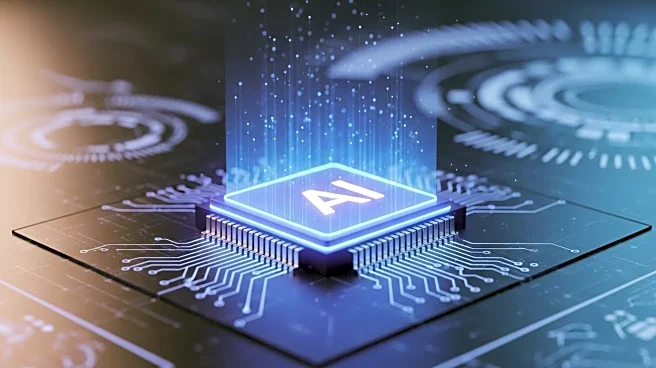What is the story about?
What's Happening?
CNET has published a comprehensive glossary detailing 57 AI terms that are becoming increasingly relevant as artificial intelligence continues to integrate into everyday technology. The glossary includes terms such as 'deep learning,' 'large language model,' and 'transformer model,' which are essential for understanding how AI systems function and interact with data. The publication highlights the growing influence of AI technologies like ChatGPT, Google's Gemini, and Microsoft's Copilot, which are reshaping digital interactions and content creation. As AI becomes more prevalent, understanding these terms is crucial for navigating the evolving landscape of technology and its applications.
Why It's Important?
The glossary serves as a valuable resource for individuals seeking to understand the complex terminology associated with AI, which is crucial as these technologies become more embedded in daily life. The widespread adoption of AI tools and platforms is transforming industries, influencing economic activities, and altering societal norms. By demystifying AI jargon, CNET helps bridge the knowledge gap, enabling more informed discussions and decisions regarding AI's role in technology and society. This understanding is vital for stakeholders, including businesses, policymakers, and consumers, as they adapt to the changes brought about by AI advancements.
What's Next?
As AI technologies continue to evolve, the terminology and concepts associated with them will likely expand and become more sophisticated. CNET's glossary may be updated regularly to reflect new developments and emerging trends in AI. Stakeholders, including tech companies, educators, and policymakers, may use such resources to enhance AI literacy and promote responsible use of AI technologies. Future discussions may focus on the ethical implications of AI, its impact on employment, and the need for regulatory frameworks to ensure safe and equitable deployment of AI systems.
Beyond the Headlines
The increasing prevalence of AI terminology reflects broader cultural and ethical shifts as society grapples with the implications of AI integration. Understanding AI concepts is not only important for technological advancement but also for addressing ethical concerns such as data privacy, bias, and the potential for AI to disrupt traditional job roles. As AI becomes more sophisticated, discussions around its impact on human behavior, decision-making, and societal values will become more prominent, prompting a reevaluation of how technology and humanity coexist.
















